




 |
 |
 |
 |
 |
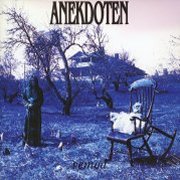 |
Vemod (1993, 46.34/57.00) *****/TTTTTKareliaThe Old Man & the Sea Where Solitude Remains Thoughts in Absence The Flow Longing Wheel [Jap CD adds: Sad Rain] |
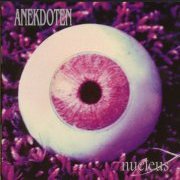 |
Nucleus (1995, 48.59) ****½/TTTTNucleusHarvest Book of Hours Pendulum Swing The Book Raft Rubankh Here This Far From the Sky In Freedom |
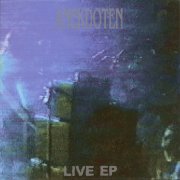 |
Live EP (1997, 25.32) ****/TTTTNucleusThe Flow A Way of Life Karelia |
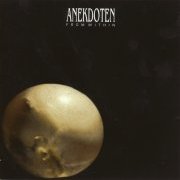 |
From Within (1999, 51.06) ****½/TTTTFrom WithinKiss of Life Groundbound Hole Slow Fire Firefly The Sun Absolute For Someone |
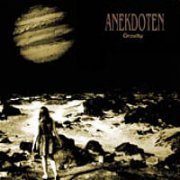 |
Gravity (2003, 46.24) ****/TTTTMonolithRicochet The War is Over What Should But Did Not Die SW4 Gravity The Games We Play Seljak |
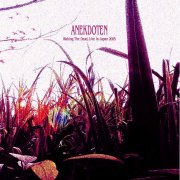 |
Waking the Dead, Live in Japan 2005 (2005, 78.56) ****½/TTTT½ |
|
| Monolith From Within Kiss of Life Hole SW4 Moons of Mars The Sun Absolute Ricochet |
Gravity This Too Will Pass Sad Rain |
|
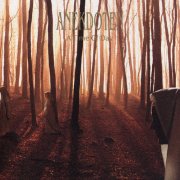 |
A Time of Day (2007, 45.03) ****/TTTTThe Great Unknown30 Pieces King Oblivion A Sky About to Rain Every Step I Take Stardust and Sand In for a Ride Prince of the Ocean |
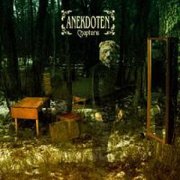 |
Chapters (2009, 127.35) ****½/TTTTT |
||
| Ricochet The Great Unknown From Within In for a Ride The War is Over Monolith A Sky About to Rain Every Step I Take |
Groundbound Gravity When I Turn Sad Rain (alt mix) Wheel The Old Man & the Sea Nucleus (demo) Book of Hours (demo) |
This Far From the Sky (demo) 30 Pieces (demo) Prince of the Ocean (demo) |
|
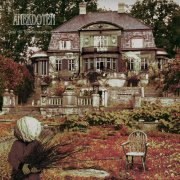 |
Until All the Ghosts Are Gone (2015, 46.22) ****½/TTTTShooting StarGet Out Alive If it All Comes Down to You Writing on the Wall Until All the Ghosts Are Gone Our Days Are Numbered |
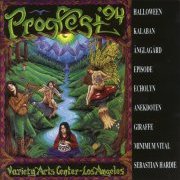 |
Progfest '94 (1995, 14.39) ****/TTTT[Anekdoten contribute]Muscle Beach Benediction Wheel Mars |
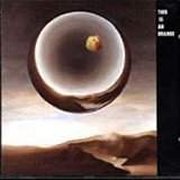 |
This is an Orange (1995, 7.20) ****½/TTTT[Anekdoten contribute]Cirkus (live) |
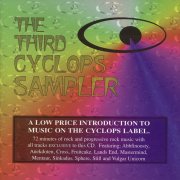 |
The Third Cyclops Sampler (1996, 9.36) ***/TT[Anekdoten contribute]Book of Hours (live) |
Current availability:
Mellotrons used:
In the early '90s, a whole crop of bands sprung up in Sweden, all seemingly dedicated to playing progressive rock as it was, rather than is; as a result, some of the best prog of the decade was recorded in the space of a few years in one small spot on the globe. Landberk were first, Änglagård and Anekdoten nipping at their heels. All three bands had an approach in common, but Anekdoten were far more Crimson-influenced than the others, even being accused of being copyists. The influence is undeniable, but Anekdoten have their own style and have moved away from their original template over the course of several albums. Now, I'd already 'decided' which tracks did and didn't feature the Mellotron, but the band have posted an official list on their site, rather blowing some of my ideas out of the water.
Vemod's opening track, Karelia, opens with Mellotron bassoon, guitarist Nicklas Berg playing a doomy minor-key part, building up until the strings come in, very effectively capturing the 'Arctic wasteland' feel of the region for which the song is named. Anekdoten owned a Mark V Mellotron at the time and could play two parts simultaneously, a trick they use to great effect throughout the album. After a minute of so of solo Mellotron, the whole band break in with a heavy Crimsonesque feel, kept up for second song The Old Man & The Sea. After the vocal section, we get a burst of Mellotron choir, with some superbly effective chords. In fact, there's not one track on the album without some Mellotron somewhere. Anna-Sofi Dahlberg's cello is also used very effectively, although she spends much of her time at the Mellotron. The Japanese version of the album (as with so many) adds an otherwise unavailable track, Sad Rain, at ten minutes, one of the longest the band has written. Once again, it's soaked in Mellotron strings and flute; worth finding, as long as you don't have to pay a fortune for it.
 |
|
| photo: Sven Eriksen | |
Second album Nucleus immediately showed signs of a stylistic change; more dissonance was in evidence, along with longer songs, possibly at its best on the classic Book Of Hours. It's debatable whether the album was actually an improvement over its predecessor, although an advancement on the Mellotron front is the introduction of vibes. In Freedom features them played solo; grungy as hell, there's no doubt that they're the real deal, key-click and all. Like Vemod, this is an essential purchase, despite (or maybe because of) its more diverse feel.
A hard-to-find Japanese release, Live EP is worth buying if you can ever find it. Three tracks drawn from their first two albums, with one piece of improv. Like King Crimson, Anekdoten are keen on improvisation and this is a particularly good example of their craft. There was also a Japanese sample-using double-live CD, Official Bootleg: Live in Japan (see below). For all that, it's a great album, featuring an early version of From Within's Groundbound and two otherwise unreleased tracks, but it's hellishly hard to find and expensive if you can track it down.
There was a lengthy wait between Anekdoten's second and third albums; From Within finally appeared in time for their European tour in late '99. It's immediately apparent that the band have quietened down a little in the interim; there's still plenty of intensity, but less pure noise. Some reviews have called the album 'more mature'; however you see it, it's another great record. Less immediate than its predecessors, it benefits from being given time; once more, no duff tracks, although maybe fewer truly outstanding ones than in the past. Interestingly, according to the list below, the band used several Chamberlin sounds via Mellotron, notably on Firefly and Sun Absolute, giving a distinctly different sound to the album.
Anekdoten's fourth album in a decade, Gravity, follows a familiar path, the songs making a logical progression from those on From Within, being more groove-based and less 'Crimsonic' than before. That isn't to say it's more dynamic; live, the earlier material sounds less 'samey' than the later, if more derivative. The material actually sounds better in its recorded form, with a rare acoustic guitar on The War Is Over and, for the first time, none of Anna-Sofi's cello, as she shifts across to full-time keys, adding a good dose of Farfisa to the mix this time round. On the Mellotron front, it's the usual complement of strings and flutes, played by not only Dahlberg and Berg (now Barker), but also drummer Peter Nordins. SW4 (yes, it's about London) doesn't appear to feature any Mellotron sounds, despite the faux flutes and The Games We Play has Mellotron wineglasses (!) and it's full steam ahead on everything else, with more of those Chamberlin sounds cropping up.
Their second official live album is Waking the Dead, Live in Japan 2005, proving, if nothing else, that they a) have an enthusiastic Japanese audience and b) make good live albums there. This time round, they seem to've borrowed a monstrous three Mellotrons, Nordins again playing one, although the main player is definitely Anna-Sofi, who seems to've given up on cello entirely. The material is largely culled from their two previous studio albums, with ripping versions of the likes of Kiss of Life and The Sun Absolute, although the album's chief appeal lies in two new pieces, the Mellotron trio Moons Of Mars and This Too Will Pass, plus a version of Vemod's Japanese-only track, Sad Rain, still unavailable on a European release... Much Mellotron, although not knowing the stage setup slightly hampers identification of sounds and players. Apart from the ubiquitous strings, I can hear cellos, flutes and vibes, though strangely, no choirs. Other sounds are possible, though I don't think the solo violin is any sort of tape-replay, which almost certainly means it is. All in all, an excellent addition to the Anekdoten catalogue, although as with all Japanese releases, you're not going to find it cheap.
The usual several-year wait preceded the release of 2007's A Time of Day and on its release it proved to be... another Anekdoten album. No problem there in principle, but apart from a slight stylistic shift in the late '90s, they don't sound that different to the young guns of fifteen years ago, though whether you consider that to be a good or bad thing is entirely up to you. The band's keyboard palette has grown this time round, with not only an unidentified organ on a couple of tracks, sounding not unlike Rick Wright's Farfisa, but credited Moog too, plus a sleeve photo of the band clustered around an uncredited VCS3. Dahlberg and Barker's Mellotron work is, of course, everywhere, with the usual strings dominating, plus cellos (or are they real?) and vibes, though the flute is definitely real. Is that Mellotron brass on Prince Of The Ocean? Hard to tell - it could be Moog, or a combination of the two... I'm hoping Anekdoten's website administrator adds the Mellotron sounds on this album to their list sometime soon, so I can, er, rip it off for this page. Anyway, another half-decade, another Anekdoten album. Don't get me wrong - it's a good record, but doesn't break any new ground and maybe at this stage in their career the band need to be seen to be taking a few chances. Or maybe not. Buy it anyway.
Instead of taking a chance, though, the band opted to release their first compilation in 2009, Chapters, albeit one with a difference, containing not only one new track, but also most of a disc of hard-to-find tracks and demos. All but one from disc one are the band's 'best of' their three previous albums; difficult to argue here - it's a good selection, but you could say that almost any selection from them would be good. Anyway, we get a mere two from my personal favourite of those three, From Within and four each from Gravity and A Time of Day, making for a good primer of their more recent work. The disc's final track is When I Turn, finally recorded as the band would like, featuring Spiritual Beggars/Opeth man Per Wiberg on piano, a worthy addition to their catalogue featuring an unusual Mellotron flute part, plus strings. Disc two's where the real meat'n'potatoes lies, though, opening with a remix of legendarily elusive early classic (and the band's longest-ever piece) Sad Rain, pretty much indistinguishable from the original, before re-runs of two tracks from Vemod. The next three selections are Nucleus-era demos (the title track, Book Of Hours and This Far From The Sky), all interesting to hear, but inessential to all but the hardcore fan, while the last two tracks are demos of two more tracks from A Time of Day, bringing the set's count up to six from that release in one form or another. Overall, then, an ideal first purchase for the sceptic, while the band's fanbase will want to hear the demos, the new track and Sad Rain without having to buy one of two expensive Japanese-only releases.
After an unprecedented eight-year wait, 2015's Until All the Ghosts Are Gone can be considered a triumphant return to form, successfully combining the sound of their first two releases with that of their later albums. With no fewer than four tracks topping the seven-minute mark, it's safe to say that Anekdoten are back in 'prog' territory after a lengthy diversion, highlights including opener Shooting Star and closer Our Days Are Numbered, both featuring the reintroduction of their original, more complex compositional style. Mellotron on all six tracks, with (unless my ears deceive me) less variety than in the past, mostly string, flute and choir parts, top use including the string line in Writing On The Wall, reminiscent of Nucleus' Book Of Hours and an angular, monophonic choir part lurching across the rhythm on Our Days Are Numbered. Dare I say, "Best since Nucleus"?
There are several compilations featuring exclusive live Anekdoten recordings, including Progfest '94 (a Mellotron-free improv and two Vemod tracks), The Third Cyclops Sampler, with a ripping version of Book Of Hours and the super-rare This is an Orange from early in the band's career, where they tear up Crimso's Cirkus on their MkV to good effect. I believe the Progfest CD is the only one of these still available; only 250 copies of This is an Orange were ever produced and even CD-R copies are hard to find.
Just out of interest, the band's official site actually lists all the Mellotron sounds used (up to Gravity, at the time of writing), so here they are:
Anekdoten are known as one of the current progressive scene's major Mellotron users, touring with one when playing in Europe and frequently borrowing one (or more) when further afield. However, going by the pictures inside the lavish packaging, their first full live album, 1998's Official Bootleg: Live in Japan, sees them using samples exclusively, doubtless due to the problems involved in sorting out Mellotron hire in foreign climes. The double CD is stunning, featuring the very best of their early repertoire, plus several new tracks, although going by the setlist provided in one of the booklets, it seems a couple of tracks remain unreleased in any form. This is Anekdoten in full flight, captured just before their style changed to a more 'modern rock' direction, although two of the tracks turned up on the following year's From Within.
The 'Mellotron' sounds are as spot-on as any samples I've heard; had I not known better, they'd easily have fooled my ears. Pretty much every track features the thing somewhere, mostly strings, with the odd bit of choir, flutes, vibes, plus bassoon on Karelia, although this particular sound doesn't fare so well. Despite not being 'real', this is a Mellotron-lover's delight, as you might have expected from this band. All in all, Official Bootleg is a great live album, pretty much faultless, in fact and the lack of real Mellotron shouldn't put anyone off, on the offchance that it might. It's devilishly hard to get hold of, but persevere; it's worth it.
Folkoperan, Stockholm, 29th August 1997 (54.54) ****½/TTTT½The Old Man and the SeaSlow Fire Thoughts in Absence Book of Hours Karelia Nucleus Wheel Tabatah |
Mellotron used:
The only officially-available real-Mellotron live Anekdoten prior to 2005's Waking the Dead is '97's Live EP, leaving a hole in their discography, Mellotronically speaking. Pictorial evidence tells us that they used samples at their 2000 NEARfest performance, leaving me with the slightly thin-sounding radio broadcast of August '97's set at the Stockholm Folkoperan. The band were clearly on a roll at that point, ripping out selections from their two studio releases plus a new track, Tabatah, still only available on the following year's Official Bootleg. Highlights include The Old Man And The Sea, Book Of Hours and Nucleus, but you'll struggle to find any low points here.
Nicklas and Anna Sofi both play what I presume to be the band's MkV, replicating most of the studio parts, although I wonder whether they may've employed a sampler, too. Aside from the ubiquitous flutes and strings, notable Mellotron passages include the oboes on Thoughts In Absence, Book Of Hours and Karelia, the vibes on Tabatah and choirs dotted about here and there. I don't know whether anyone's put this recording online, but if you get the chance to hear it, do so.
See: Nicklas Barker | Nicklas Barker (samples) | Cyclops Samplers | Progfest | This is an Orange | My Brother the Wind | Kosmogon